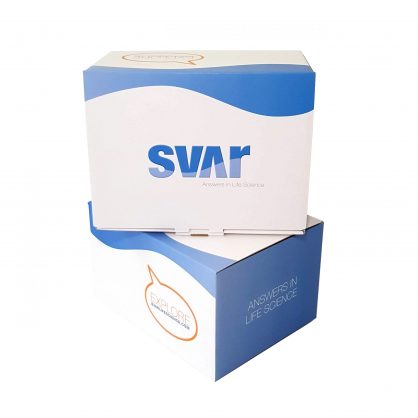Complement TCC ELISA Kit
Complement TCC ELISA Kit Developed and Manufactured by Svar Life Science
Size: 1×96 wells
Sensitivity: 3 ng/ml
Dynamic Range: 10 ng/mL – 400 ng/mL
Incubation Time: 2 hours
Sample Type: EDTA plasma
Sample Size: 30 µl
Alternative Names: Terminal Complement Complex
For Research Use Only
Controls Included
Assay Background
In all cases where determination of complement function is wanted, TCC levels can be very informative as a supplement to functional assessment of the three complement pathways. It reflects the historical in vivo activity of complement in a given sample. The complement system plays an essential role in chronic, autoimmune and infectious disease. There are three pathways of complement activation, namely the classical, the alternative and the lectin pathway. The soluble terminal complement complex is a product of the terminal pathway and can be a result from all three complement activation pathways. Since TCC reflects activation to the end of the final terminal pathway irrespective of the initial pathway involved, it is a particularly good candidate for general evaluation of complement activation. It is well-known that the complement system plays a key role in the development and amplification of the inflammatory process at the tissue level in various pathological conditions. Increased levels of TCC can be detected in for example hemolytic uremic syndrome (HUS), Systemic lupus erythematosus (SLE) and rheumatoid arthritis (RA). The complement system can also be activated by artificial surfaces, for example during hemodialysis or cardiopulmonary bypass, resulting in increased levels of TCC. TCC is also well suited for studies of complement activation by biomaterials in medical devices. TCC can like other activation products of complement be measured in assays using neo-epitope specific monoclonal antibodies. Neoepitopes are hidden in the native complement component and exposed after complement activation.
Related Products
Complement C4d ELISA Kit
Complement MBL Pathway ELISA
Total Complement Functional Screen ELISA
Related News
Complement Assays by EagleBio
EagleBio Spotlight: Complement System


